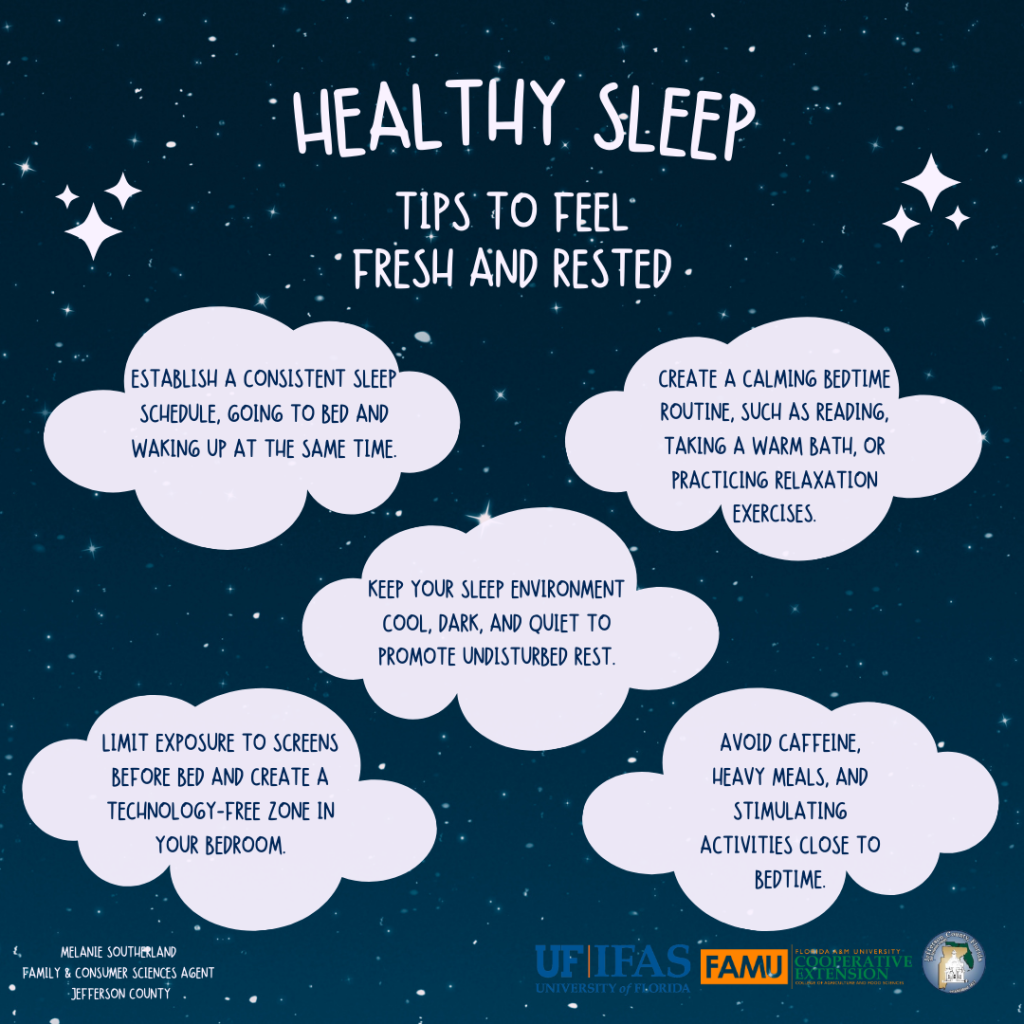Did you know that 35% of adults in the U.S. do not get the recommended 7 or more hours of sleep each night [1]? Sleep deprivation is on the rise and can negatively affect overall health. The body’s ability to function properly and to feel rested is dependent upon how much sleep a person gets. Research shows that not getting the recommended amount of sleep each night correlates with obesity, along with other chronic conditions such as heart disease, diabetes, and high blood pressure [2].
Why is this important? Obesity is one of the leading causes of chronic disease and mortality in the U.S. People who are obese are more likely to have chronic diseases and die at an earlier age compared to non-obese individuals. Some things cannot be controlled regarding overall health but there are certainly ways to reduce the risk for chronic conditions and obesity. Aim for at least 150 minutes of moderate-intensity activity per week, sleep 7-9 hours each night, and eat various fruits and vegetables, lean protein, whole grains, and low-fat dairy to support health. There are various health benefits to getting enough sleep; for example, getting sick less often, staying at a healthy weight, reducing stress, and improving mood, improving attention and memory, and improving heart health and metabolism.
Sleep quality is important in addition to getting the recommended amount of sleep, you also need to ensure you are getting quality sleep. Quality sleep includes waking up feeling refreshed and rested, falling asleep easily and quickly, and staying asleep. If you wake often, have trouble falling asleep, and wake tired, you likely are not getting quality sleep. Here are some important sleep tips that could help you improve sleep and sleep quality. It is important to wake up and go to bed at the same time each day because that sets an expectation for your body’s internal clock to shut down and wake up. A nightly routine is important because it puts your body into a system that is preparing for sleep and staying consistent can help your body to understand that it is bedtime, and rest is around the corner. Limit screen time before bed because it is stimulating to the brain, which can make it harder to get to sleep, not to mention the added stress it could cause. Consider, reading a book, listening to soft music, and journaling as part of your relaxing nightly routine. Exercise can help reduce stress so, engaging in exercise is important not just for physical health, but for sleep health too.
[1]Center for Disease Control and Prevention. Sleep and Sleep Disorders. Data and statistics: Adults. https://www.cdc.gov/sleep/data-and-statistics/adults.html
[2] Watson NF, Badr MS, Belenky, G, et al. Recommended amount of sleep for a healthy adult: a joint consensus statement of the American Academy of Sleep Medicine and Sleep Research Society. Sleep. 2015; 38(6):843-844. Doi: 10.5665/sleep.4716
American Academy of Sleep Medicine. Sleep Education. Healthy sleep habits. https://sleepeducation.org/healthy-sleep/healthy-sleep-habits/
- Osteoporosis: A Silent Threat to Bone Health - October 24, 2025
- The Power of Positive Thinking: How It Shapes Mental Health - October 1, 2025
- High Blood Pressure? Know your Risk! - January 10, 2025

